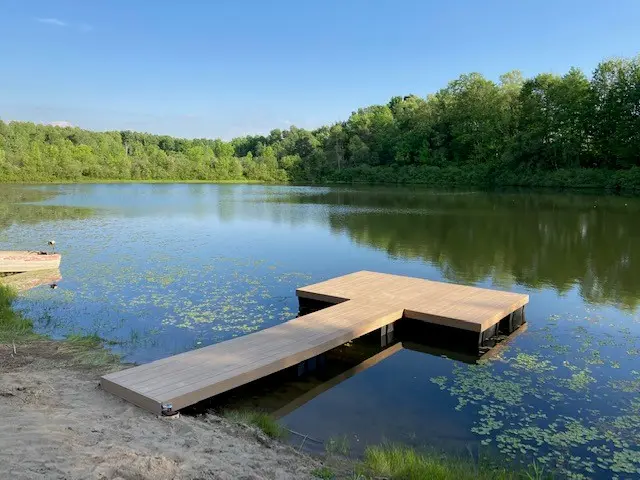Eco-friendly floating dock designs are revolutionizing waterfront structures, offering a perfect balance of beauty, functionality, and environmental responsibility. These innovative docks combine the natural charm of floating platforms with sustainable materials and construction techniques, making them ideal for use in lakes, rivers, and coastal areas. One of the most compelling aspects of eco-friendly floating docks is their minimal impact on the surrounding ecosystem. Traditional fixed docks can alter water currents and disrupt aquatic habitats. In contrast, floating docks are designed to rest on the water’s surface, allowing for natural water flow and preventing damage to marine life. This feature is particularly important in sensitive environments, where preserving biodiversity is a top priority. Many designs utilize permeable materials such as recycled plastic or sustainable wood, which help prevent the buildup of pollutants in the water while maintaining structural integrity. The materials used in eco-friendly floating docks are also a key consideration.

Recycled plastic, for example, is durable, resistant to corrosion, and has a much lower environmental footprint than conventional materials. Some floating dock is even built with reclaimed wood, further reducing the demand for new timber and minimizing the impact on forests. By using these sustainable materials, eco-friendly docks contribute to a circular economy, where resources are reused rather than discarded. Additionally, some designs incorporate solar panels or other renewable energy systems to power dock lighting, pumps, or other systems, reducing the overall energy consumption and carbon footprint. In terms of design, eco-friendly floating docks prioritize aesthetics just as much as practicality. The use of natural, sustainable materials often gives these docks a rustic, yet elegant appearance that blends seamlessly with the natural surroundings. Customizable designs allow homeowners or businesses to tailor the look of their dock to suit their specific needs, whether they require a simple platform for a boat or a more elaborate design with seating areas, gardens, or even green roofs.
Floating docks can also be designed to accommodate a variety of watercraft, from small kayaks to larger boats, making them versatile and adaptable to different environments. Functionality is another key advantage of eco-friendly floating dock systems. Unlike fixed docks, which can be vulnerable to damage from changing water levels or shifting tides, floating docks rise and fall with the water, ensuring they remain stable even in fluctuating conditions. This flexibility makes them suitable for use in areas with extreme tidal movements or fluctuating lake levels. Furthermore, modern eco-friendly designs are engineered for easy assembly and maintenance, with modular components that can be replaced or upgraded as needed. This reduces the long-term cost of ownership and ensures the dock remains functional for years to come. Lastly, eco-friendly floating dock manufacturers contribute to a sustainable waterfront lifestyle. By using renewable materials, supporting local ecosystems, and reducing energy consumption, these docks serve as a model for sustainable living and encourage more people to embrace environmentally conscious practices. Whether used for recreational purposes, as a private dock, or for public waterfront access, eco-friendly floating docks are an attractive, practical, and sustainable solution for modern waterfront living.